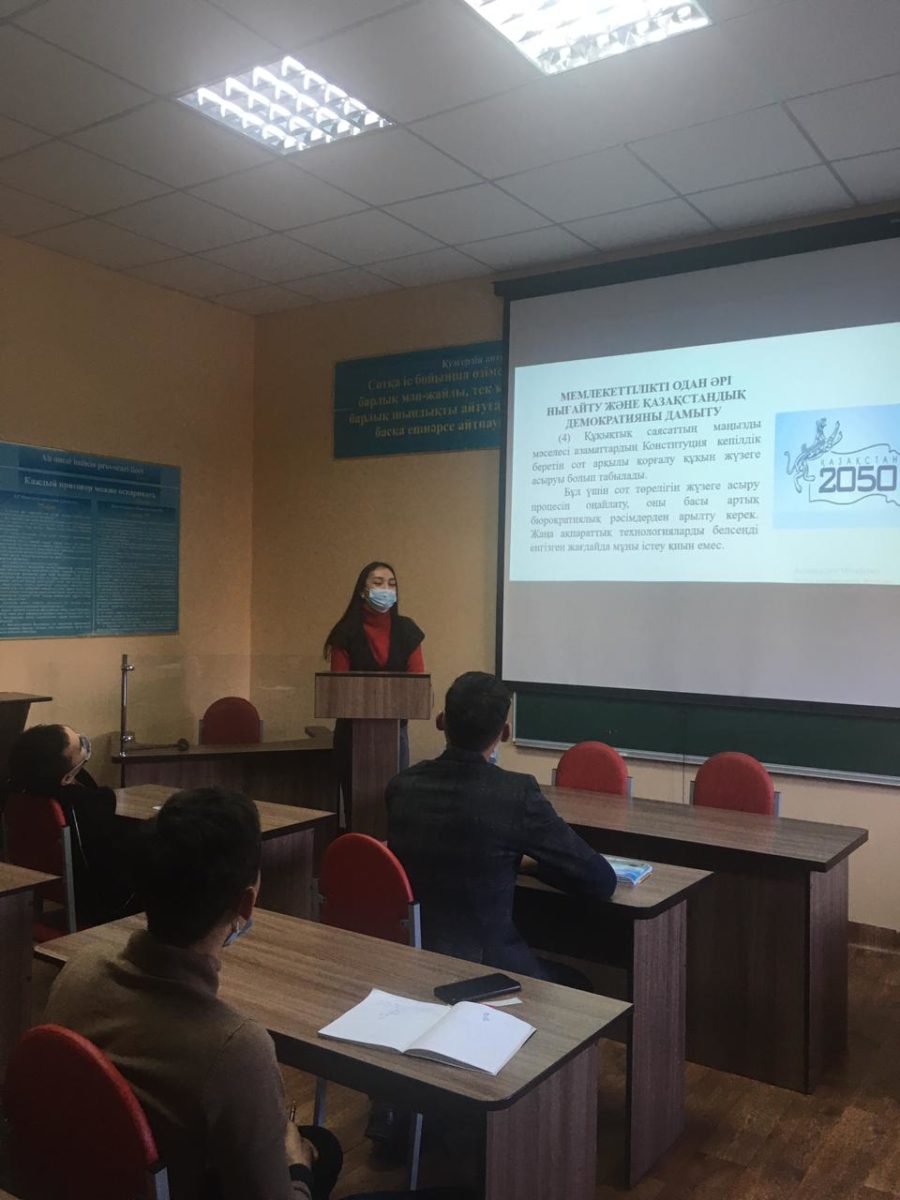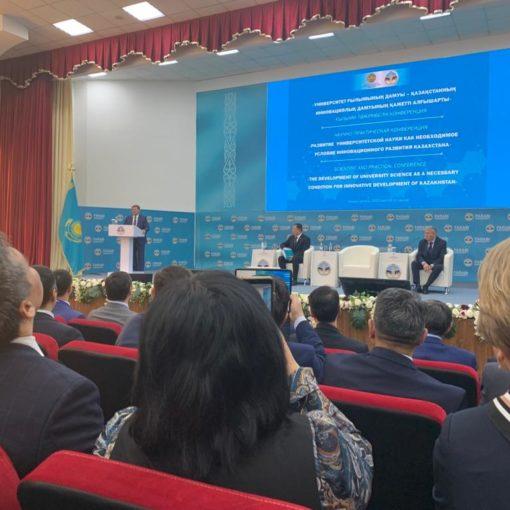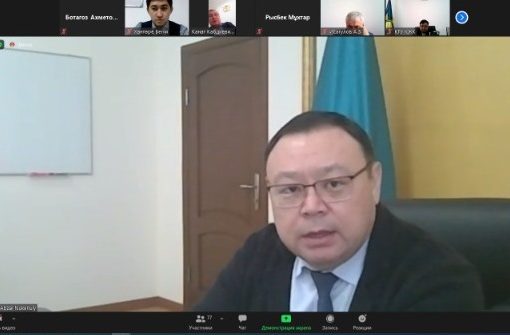On the 9th of December was held the regular meeting of the students’ scientific circle “Adilet”.
The meeting of the group was dedicated to the improvement of the civil legal proceedings in the Republic of Kazakhstan.
The meeting was opened by the senior lecturer of the department of legal disciplines Zhumzhumaev N., who told the audience about the main directions of the modernization of the judicial system of the Republic of Kazakhstan.
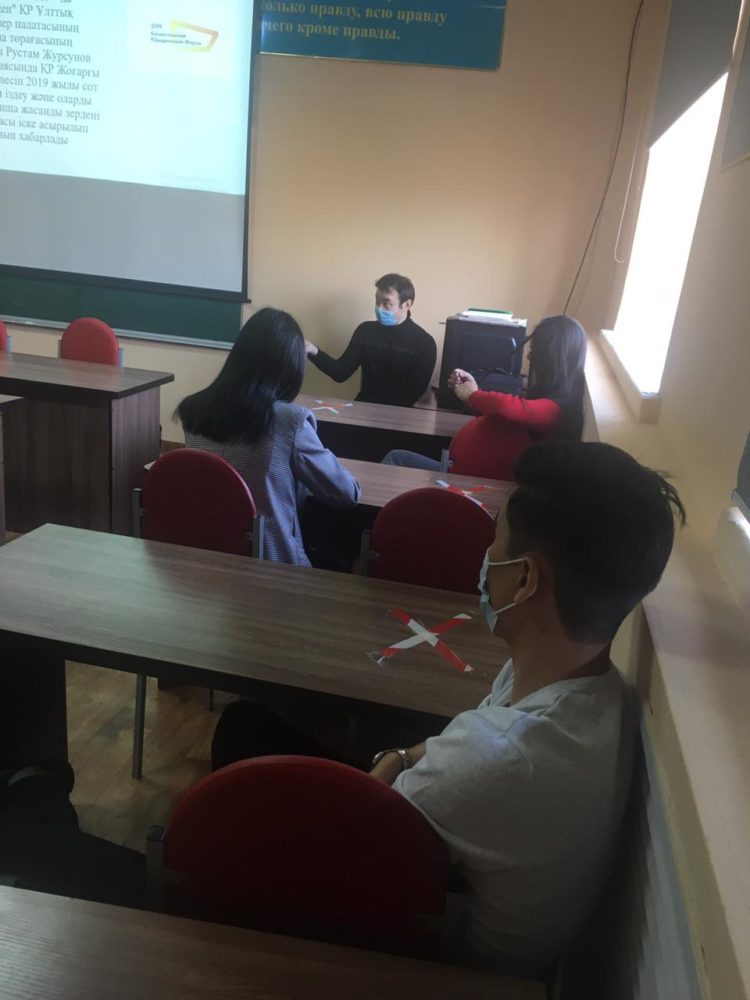
At the session of the study group heard the scientific report of the 3rd year student M. Kozhakhmetov on the theme “Prospects and problems of modernization of the civil legal procedure in the Republic of Kazakhstan”.
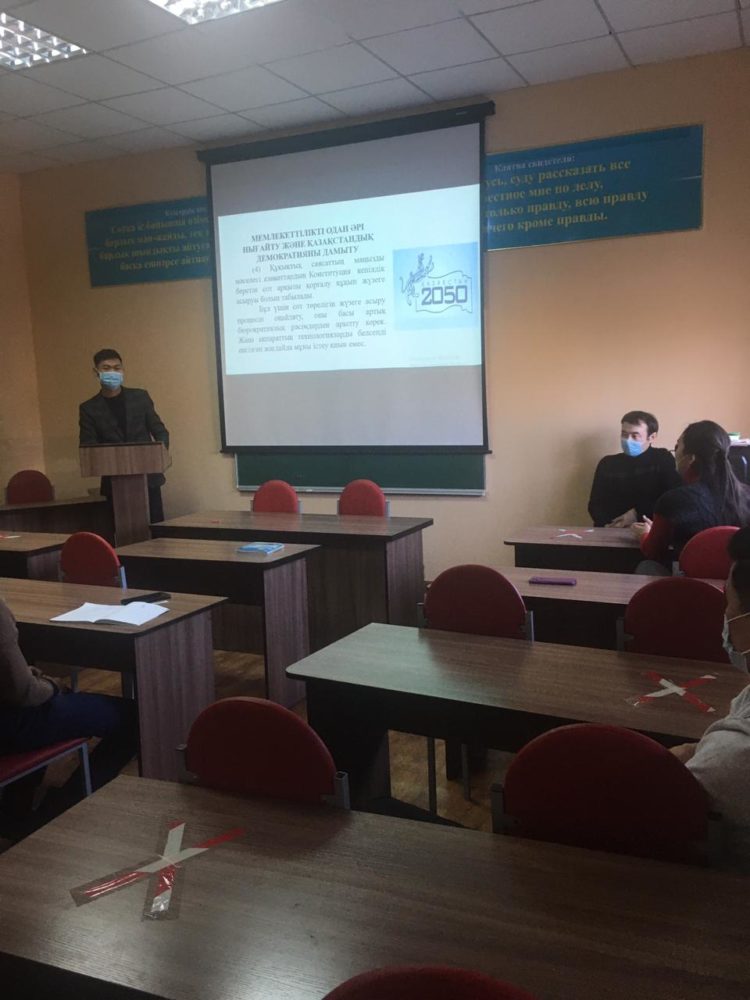
At the session were considered the provisions of the program “Plan of the Nation – 100 concrete steps”, Strategy “Kazakhstan-2050”, the Concept of a legal policy of the Republic of Kazakhstan till 2030 approved by the Decree of the President of the Republic of Kazakhstan on October 15, 2021, the Constitutional law of the Republic of Kazakhstan “About judicial system and judges’ status of the Republic of Kazakhstan”, the Civil procedural code of the Republic of Kazakhstan.
The participants of the meeting discussed the topical issues of administration of justice in civil cases, especially the conclusion of agreements on dispute resolution through mediation and participative procedure, the introduction of artificial intelligence and blockchain technologies in the judicial process.
M. Kozhakhmetov told about his vision of the introduction of artificial intelligence in civil proceedings.
The participants of the meeting Orynova A., Mergembaev A. raised the question of moral aspects of the application of artificial intelligence technologies in civil proceedings.
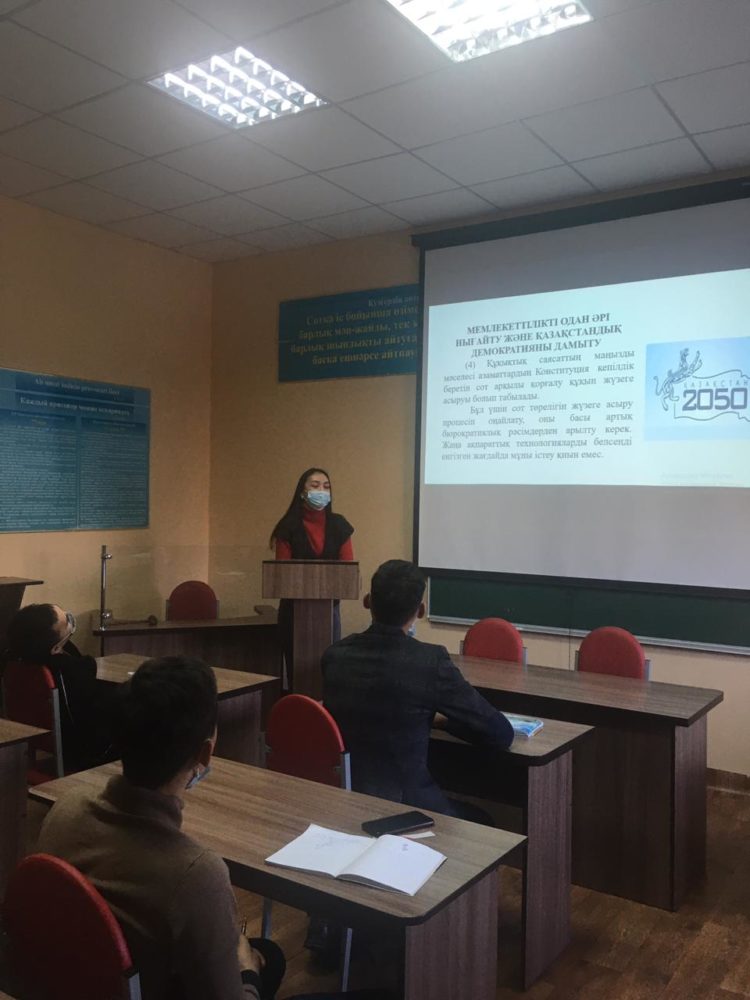
The meeting of the group was held in a relaxed atmosphere. The participants were particularly interested in the application of reconciliation procedures in civil proceedings, implementation of artificial intelligence and Big Data technologies in foreign countries, as well as legal aspects of the use of neural networks in legal practice.

